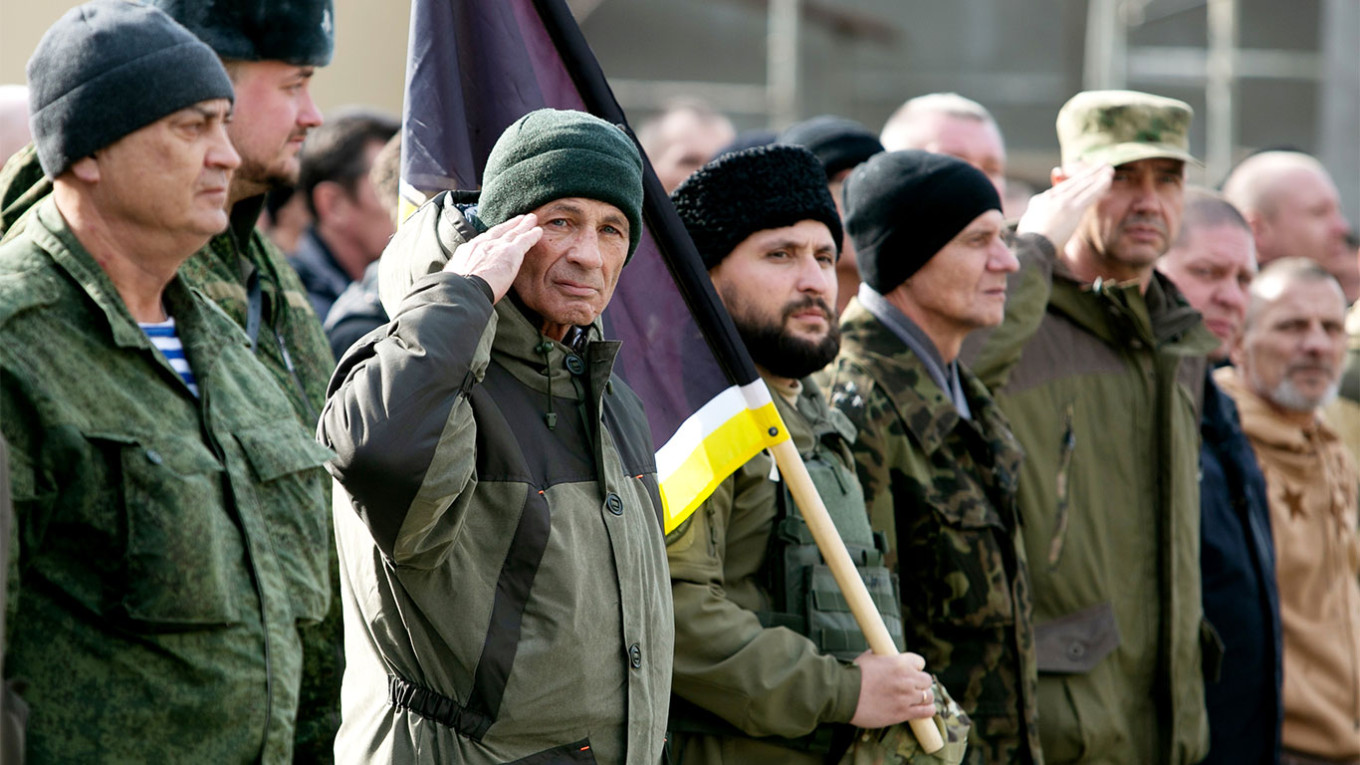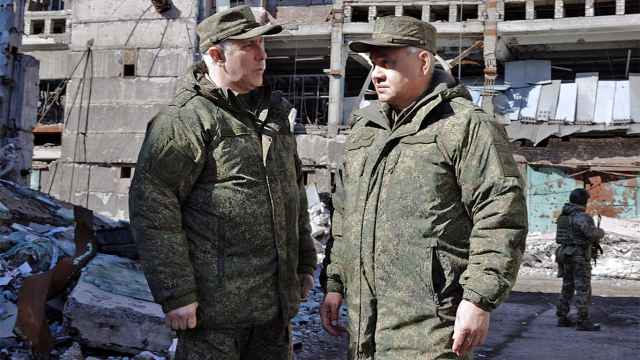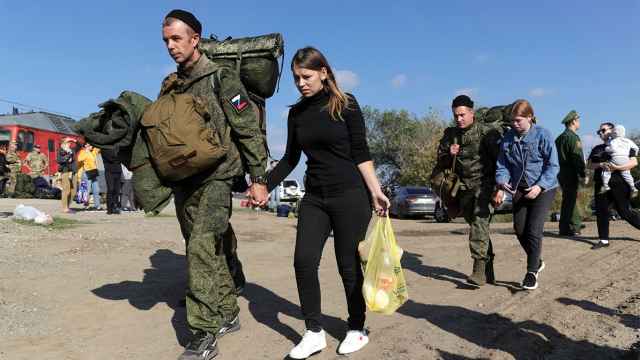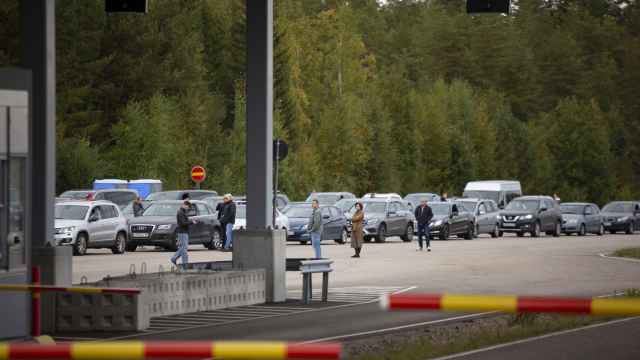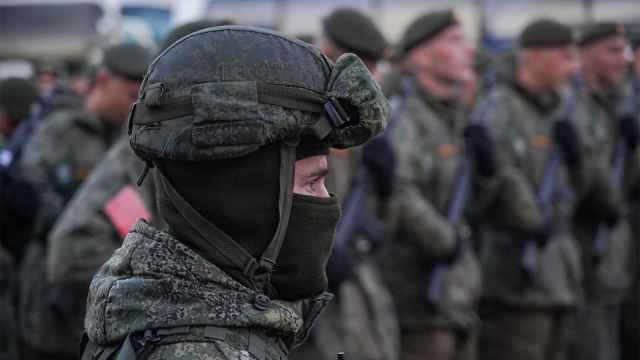Alexander was quickly deployed to the frontlines in Ukraine after he joined a Russian unit for volunteer soldiers in October because he wanted to “defend his motherland.”
One month later, he was badly injured by artillery fire near the Ukrainian village of Makiivka amid intense fighting in the east of the country.
He told The Moscow Times from his hospital bed that 72 of the 98 soldiers in his unit were killed in the incident.
All the dead were what are referred to in Russia as “volunteers” — an umbrella term for the tens of thousands of men who have chosen to join the military specifically to take part in combat operations in Ukraine.
“We are true patriots,” said Alexander, 31, who declined to provide his surname.
Many of these men apparently believe the Kremlin’s messaging that Moscow is battling “Nazis” who control Kyiv and are waging a “genocidal” campaign against Russian-speakers.
“Our grandfathers fought against the Nazis in World War II and now we are fighting against Nazis in Ukraine,” said Vladislav Malov, 47, a volunteer who recently returned to his hometown of Nizhnekamsk in the Russian republic of Tatarstan.
While ideology likely is one motivation for these soldiers, incentives such as high salaries, bonuses and opportunities for promotion and medals — as well as pressure from families — are also believed to play a major role.
Experts said that coverage of “volunteer battalions” has also been used by the Kremlin’s propaganda machine to create the impression that ordinary Russians are willing to fight and die in Ukraine.
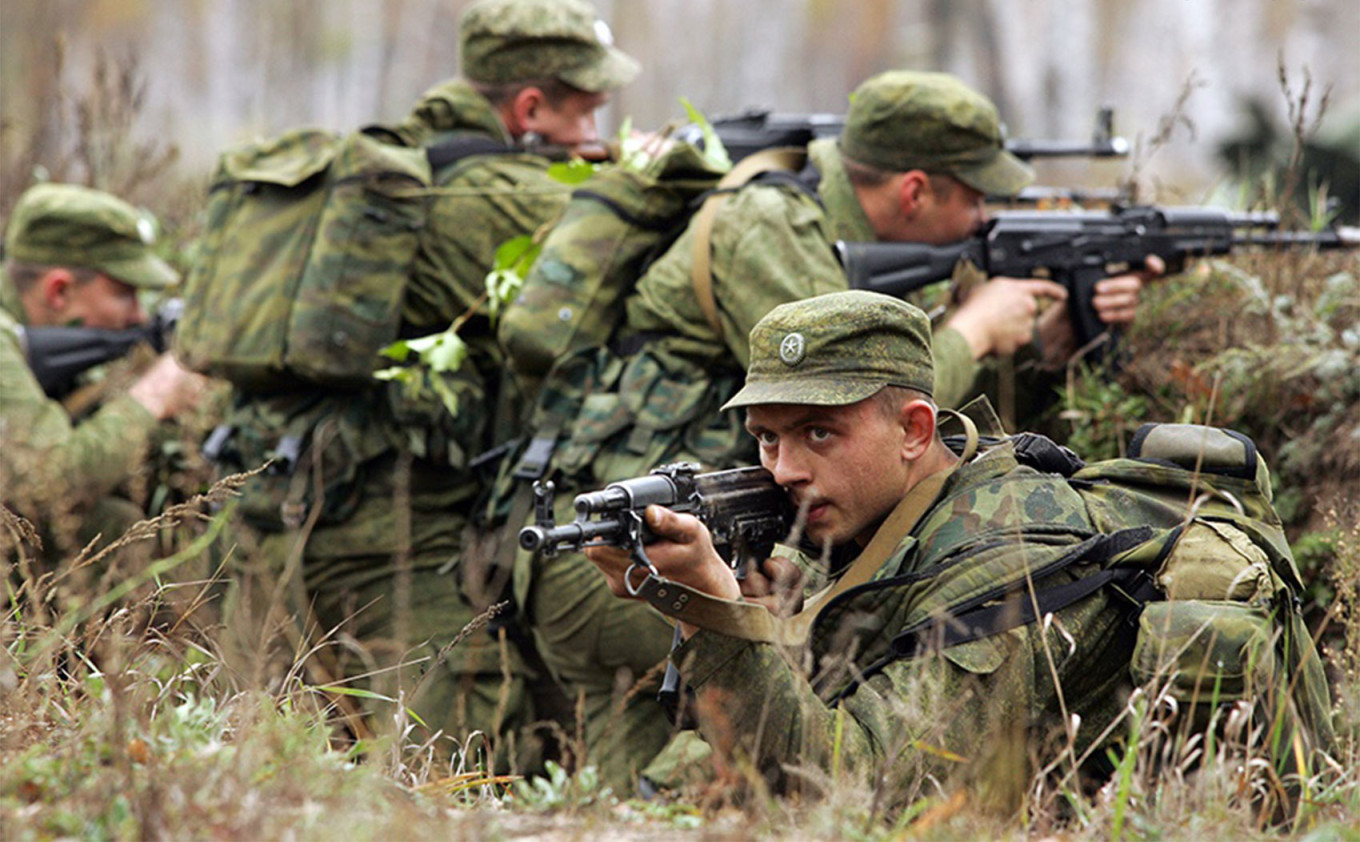
There are no official figures for the numbers of Russian “volunteers” currently in Ukraine, but they include tens of thousands of men fighting in regional battalions raised by local authorities and given names like “Tiger,” units of Cossacks and Russia’s so-called Special Combat Army Reserve.
They all operate under the umbrella of the Defense Ministry and have command structures integrated into the Armed Forces.
On the battlefield in Ukraine, volunteers fight alongside regular soldiers, men drafted during the Kremlin’s “partial” mobilization announced in September and Wagner Group mercenaries.
Just as the number of volunteers in Ukraine is impossible to verify, it is also difficult to know how many have been killed.
However, a tally of confirmed military deaths kept by the BBC Russian Service and independent media outlet Mediazona shows that 1,111 volunteer fighters have died in Ukraine since last February.
While this is likely far below the real figure, it suggests about 10% of Russia’s fatalities in Ukraine have been volunteers.
One of the largest volunteer groups is Russia's Special Combat Army Reserve — known as BARS (“snow leopard” in Russian) — was set up in 2015 but only actively promoted by the authorities in late 2021 in the run-up to the invasion of Ukraine.
Analogous to the British Territorial Army or the United States Army Reserve, those enrolled in BARS receive salaries and take part in regular military training while retaining their civilian jobs. In times of war, they can be deployed.
About 20 BARS units — their numbers boosted by fresh volunteers — are currently in Ukraine, according to Telegram channels and group chats seen by The Moscow Times.
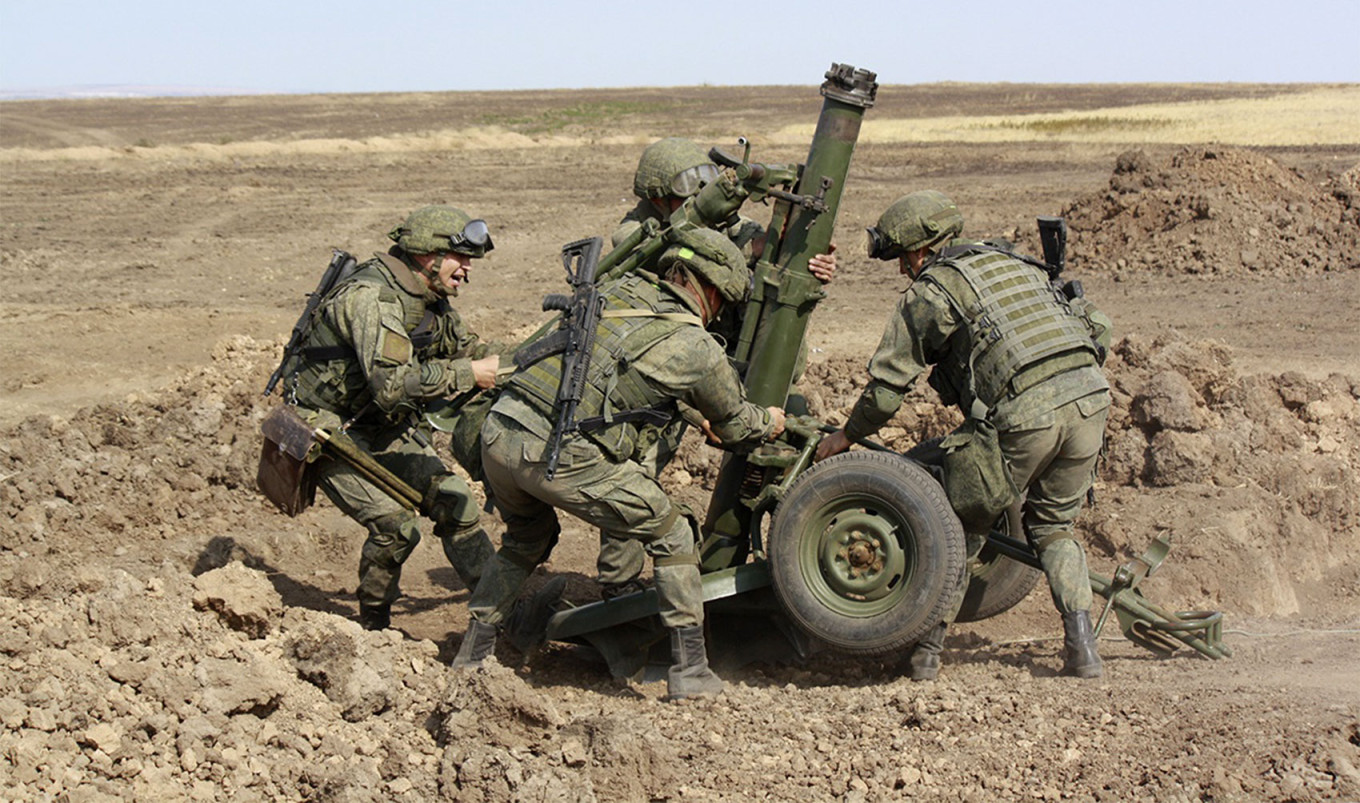
Joining BARS is one way to join the fight if you don’t fit the Defense Ministry’s criteria for enlistment, three volunteer soldiers told The Moscow Times.
In particular, BARS is more flexible on age restrictions.
Some men also told The Moscow Times that they joined “volunteer” battalions because it gave them greater choice over their commanders and fellow soldiers.
“I've known my guys my whole life,” Alexander said, referring to his BARS unit and the local men with whom he volunteered.
“A mobilized soldier doesn’t know his comrades when he goes to the front.”
Another major motivating factor is money.
Volunteers can receive as much as 300,000 rubles ($4,175) a month — several times higher than average salaries in rural regions.
They are also often eligible for one-off sign-on payments and bonuses for destroying enemy aircraft or tanks.
Little is known about the social background of the men volunteering in Ukraine, but a high percentage reportedly have military experience and many fought in eastern Ukraine in 2014, when Russia backed a separatist uprising against Kyiv.
Many are believed to come from small towns and rural areas with higher poverty rates and fewer job opportunities.
Russian authorities have actively encouraged volunteers to join the military since the full-scale invasion of Ukraine.
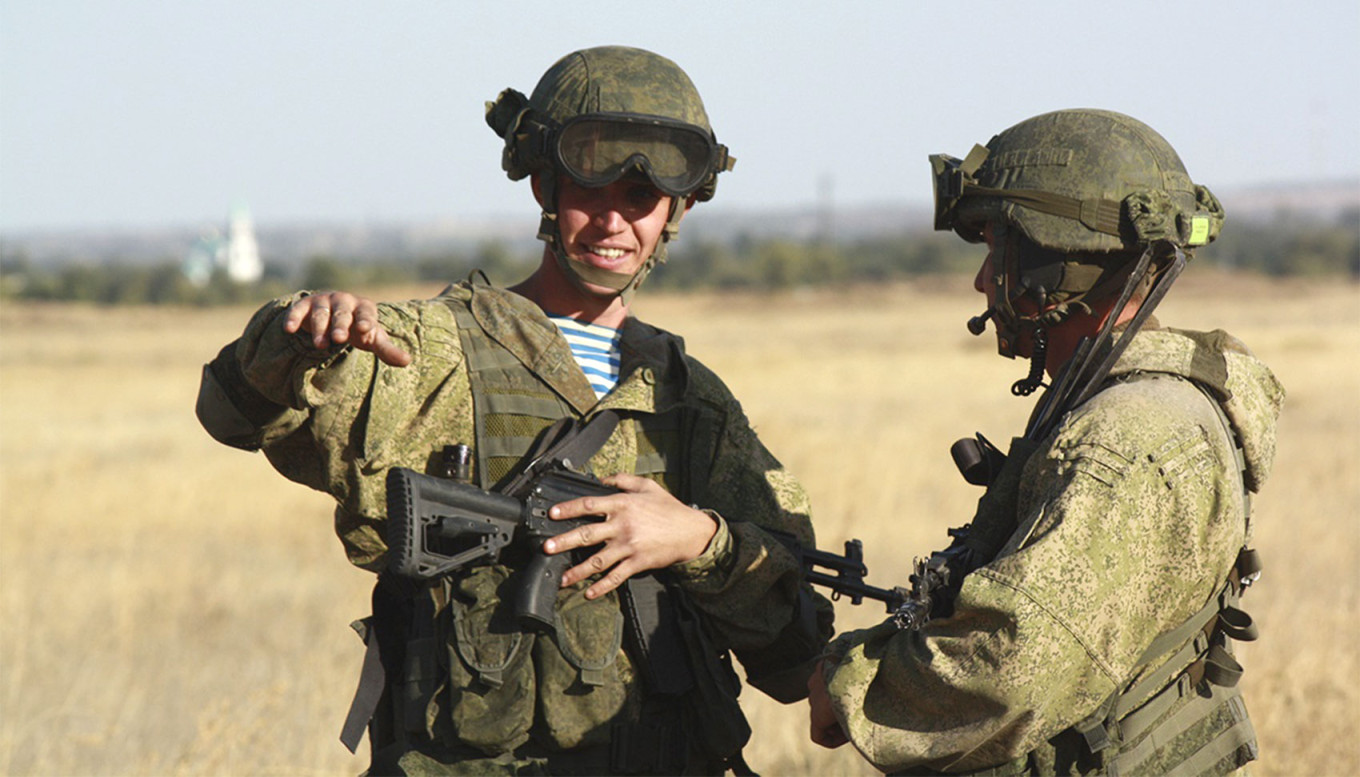
“Our country allowed volunteers to participate in hostilities for the first time,” Sergei Fomchenko, a military commander who fought in Ukraine in 2014 and set up the high-profile BARS 13 unit earlier this year, said in August.
Fomchenko did not respond to interview requests from The Moscow Times.
Putin last month signed a law recognizing volunteers as war veterans — mandating generous pensions — and said in September that employers should guarantee volunteers’ jobs for when they return to civilian life.
However, many aspects of a volunteers’ legal status are unclear.
A number of volunteer fighters have described problems or delays with payments and other benefits — and some said they did not know with whom they had signed contracts.
“We signed some papers, but it wasn’t with the Defense Ministry,” Alexander told The Moscow Times. He said he didn’t know who his contractor was.
“We didn't care about money or documents,” one volunteer soldier who requested anonymity to speak freely told The Moscow Times. “We [just] wanted to go and join our guys.”
Sergei Krivenko, the head of Citizen, Army & the Law, an NGO providing legal assistance to Russian soldiers, confirmed that BARS fighters often lacked proper contracts — although he said he did not know whether this was intentional or merely the result of incompetence.
Once enlisted, volunteer soldiers have been used both to reinforce regular units and grouped into new formations.
Russia’s newly created 3rd Army Corps, for example, was made up of volunteers and given modern equipment before reportedly being deployed to eastern Ukraine in August in an attempt to stop successful advances by the Ukrainian army.
However, some analysts believe Russia’s volunteers have had minimal impact on the battlefield and are more useful as a talking point for Kremlin propaganda.
Volunteer battalions — in particular BARS units — have been heavily promoted by pro-Kremlin media, Russian pro-war correspondents, state TV channels and have even been featured on entertainment shows and praised by Putin himself.
Independent military analyst Pavel Luzin said units like BARS were being mythologized in order to help create the illusion that there is popular support for the war in Ukraine.
“It’s just a part of a propaganda campaign,” he said.
A Message from The Moscow Times:
Dear readers,
We are facing unprecedented challenges. Russia's Prosecutor General's Office has designated The Moscow Times as an "undesirable" organization, criminalizing our work and putting our staff at risk of prosecution. This follows our earlier unjust labeling as a "foreign agent."
These actions are direct attempts to silence independent journalism in Russia. The authorities claim our work "discredits the decisions of the Russian leadership." We see things differently: we strive to provide accurate, unbiased reporting on Russia.
We, the journalists of The Moscow Times, refuse to be silenced. But to continue our work, we need your help.
Your support, no matter how small, makes a world of difference. If you can, please support us monthly starting from just $2. It's quick to set up, and every contribution makes a significant impact.
By supporting The Moscow Times, you're defending open, independent journalism in the face of repression. Thank you for standing with us.
Remind me later.



